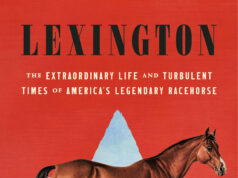Park City
by Ann Beattie
(Knopf)
After being tossed under an umbrella of writers including Carver, Cheever, Bobbie Ann Mason and Updike for so long, Ann Beattie has finally found her own place in the literary sun with her latest collection of short stories. 

These stories capture the moods, actions and mores in the three decades since the 1970s. From the hippies to the yuppies, from the dopers to personal ad placers; pop culture is endemic throughout a Beattie world. And yet the societal landscape only acts as a stage on which human and intimate dramas are played out: a couple fights with caustic aggression in “The Four Night Fight”; a man dies of AIDS in “Second Question.”
“Cosmos,” one of the eight previously uncollected newer works in the volume, delivers a story about the complexities of love with sharper literary craft than is evidenced in the works dating from the 70s and 80s. However, in an odd perplexity, judging recent work better is in no way calling earlier work into question. Levels of sophistication and ambition have just been raised throughout her career.
Beattie wields foreshadowing as a conscious sword in “Cosmos”: Unbeknownst to us Jason has stolen the neighbor boy’s bike and is using it as an all-terrain vehicle in the woods behind the house. It will later cost Carl forty dollars-as much as it would cost to buy another similar piece of junk…
Later in the narrative, in what can only be compared to filmic simultaneity, the reader sees the child take a spill off the bike as the adults are talking in the background.
Meanwhile, the looming tree; the wheels skidding on wet leaves; the crash; the young boy toppled; though he will walk away with only a bruise. He might even flash the trees the victory sign.
Beattie’s technical hand has become swift over the years. She is able to maneuver characters through a manifold of narratives with grace. She is at her best when she weaves the effects of lyrical language with psychological motivations to forge a blistering truth. In earlier fiction, stories felt automated and disconnected. Moral fiber was the epicenter and Beattie’s settings often read overly formal, almost Ibsenesque and Victorian. Hardly a damning criticism. And what any reader will witness in the trajectory of this talent is the gradual development of her fictional characters’ free will. They live and breathe with uncanny autonomy. Character development has been replaced by character independence, which in turns makes for a narrative that emanates from fictional action rather than from authorial aesthetic decision. Any artifice which might have been evident before has melted away, and what we are left with is one of the most engaging collections in decades.
-Ellison Austen Walcott







